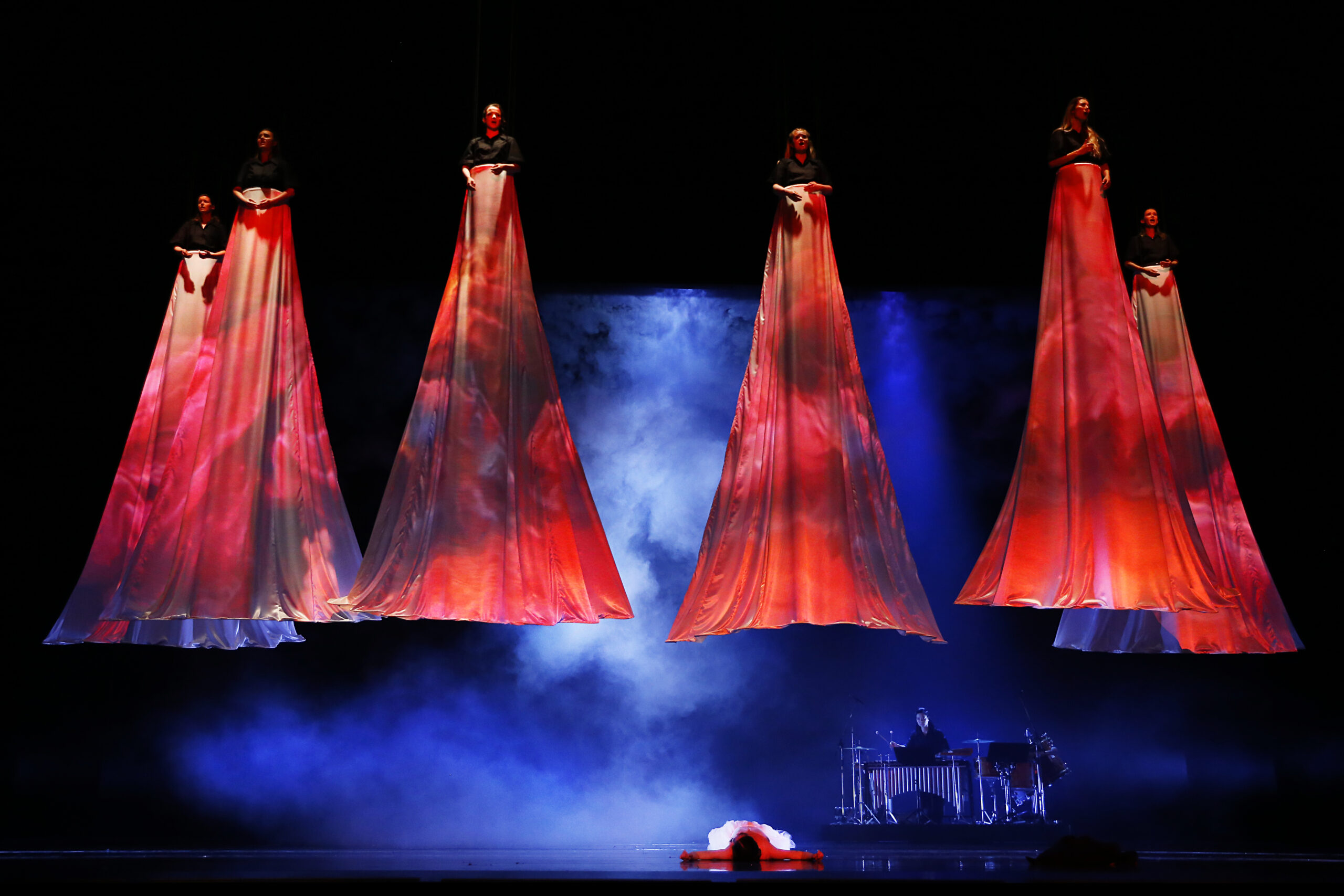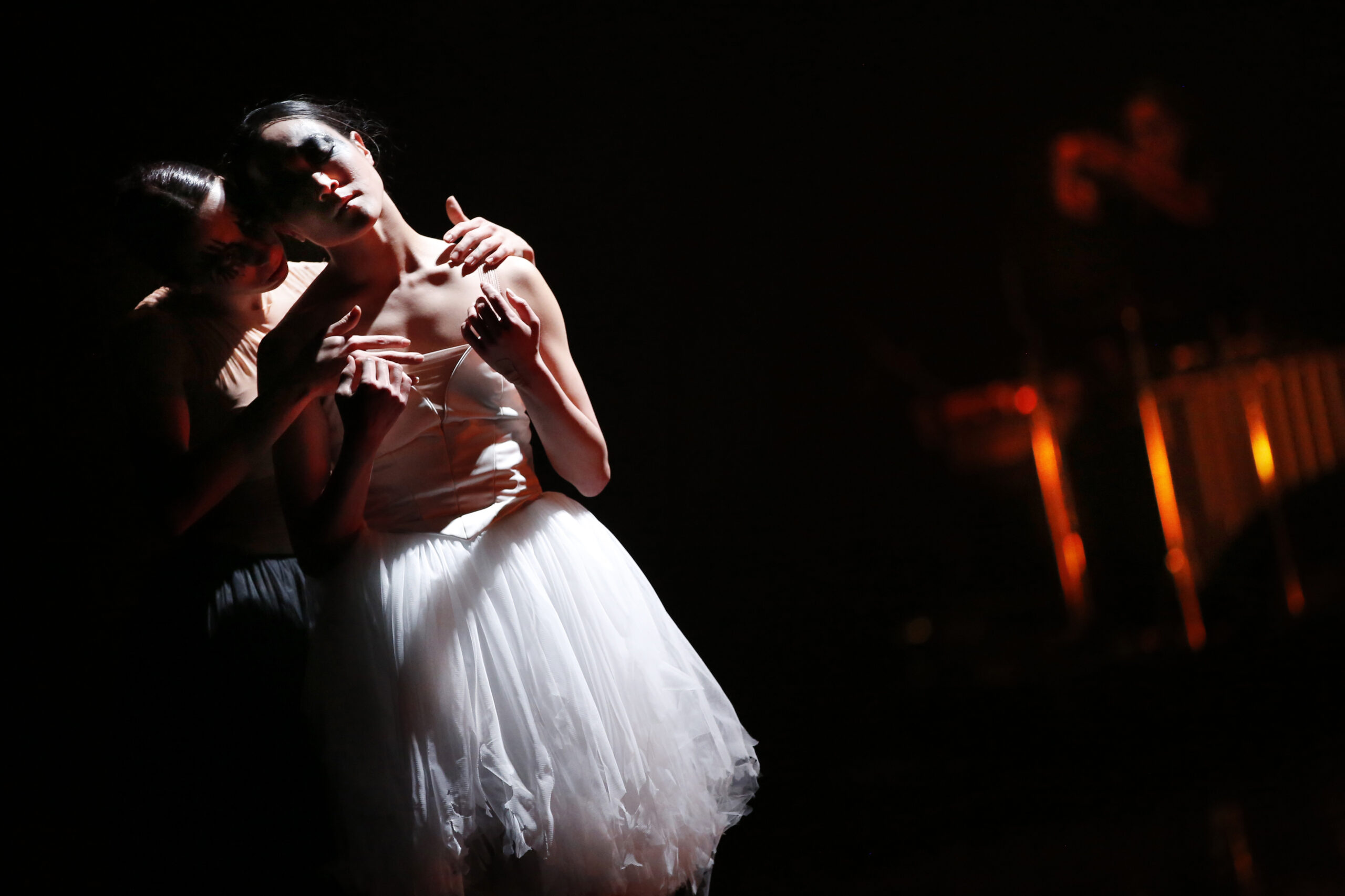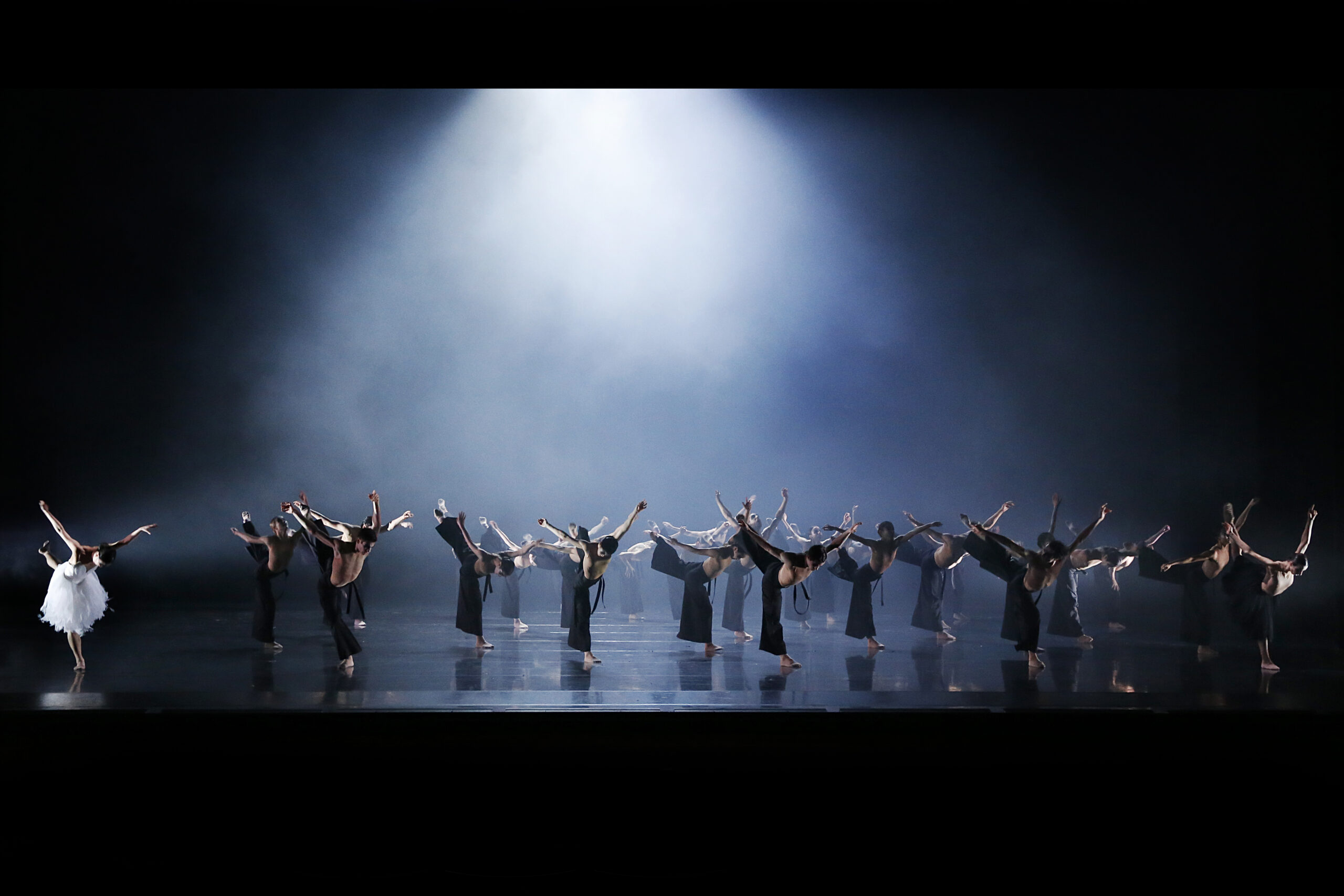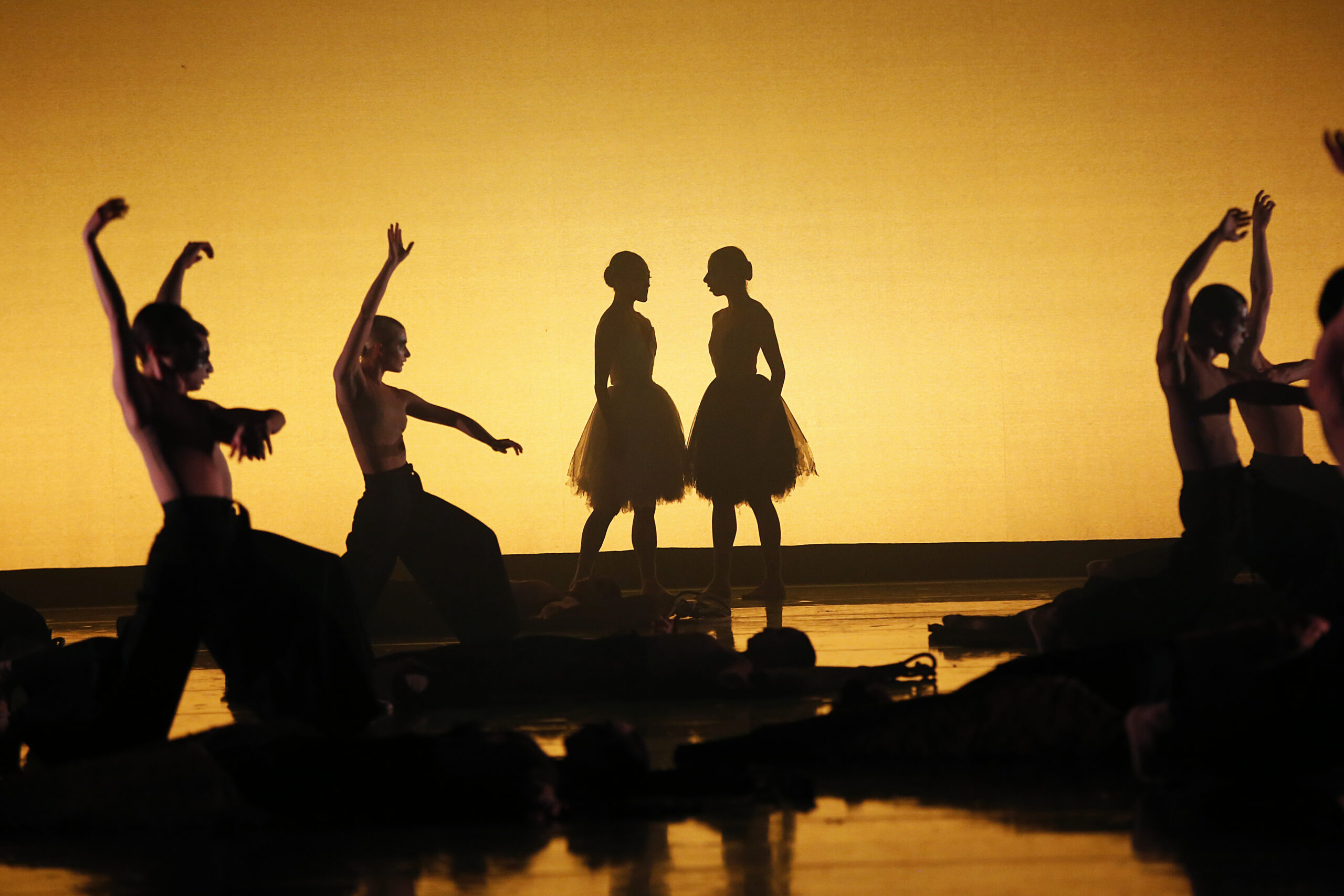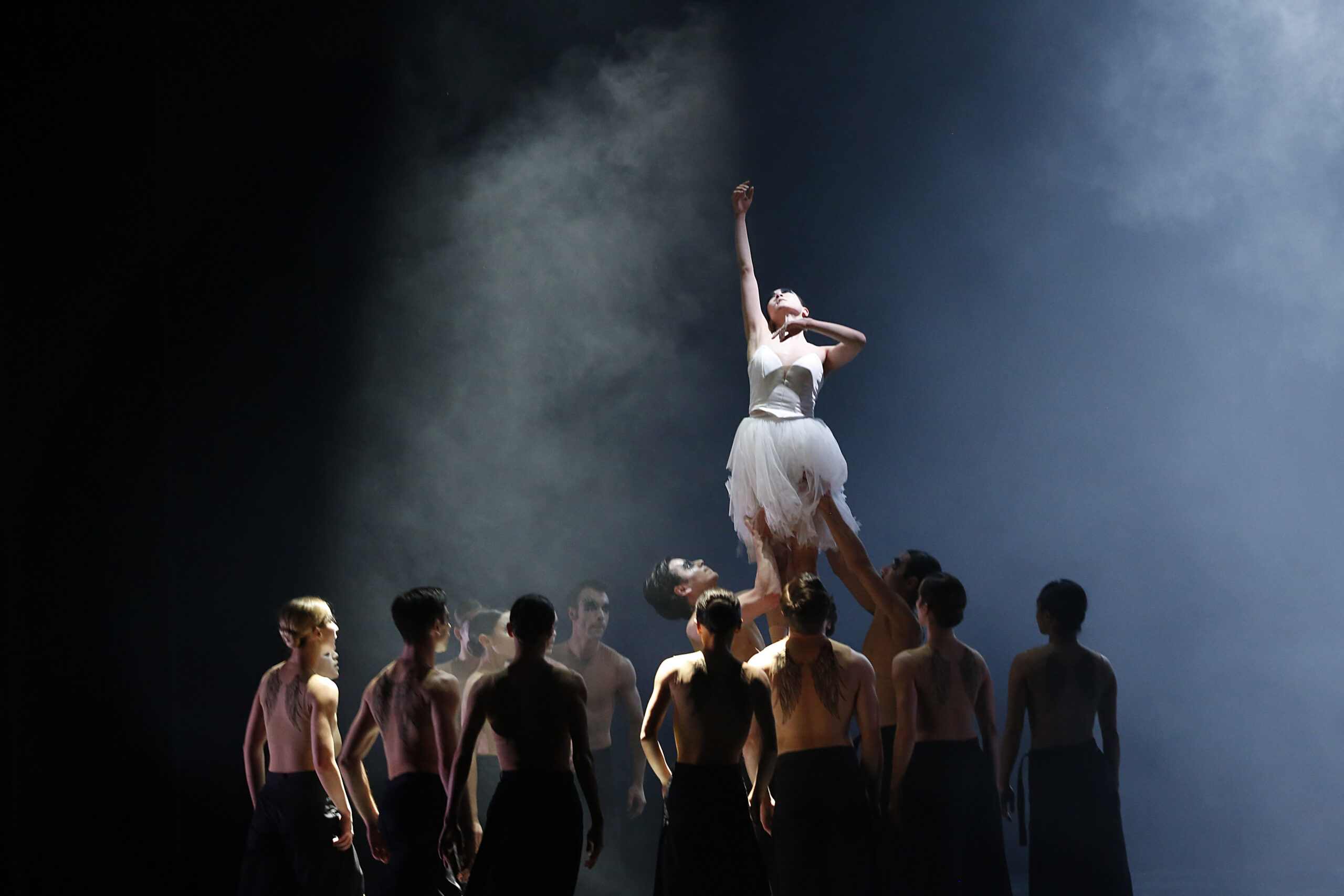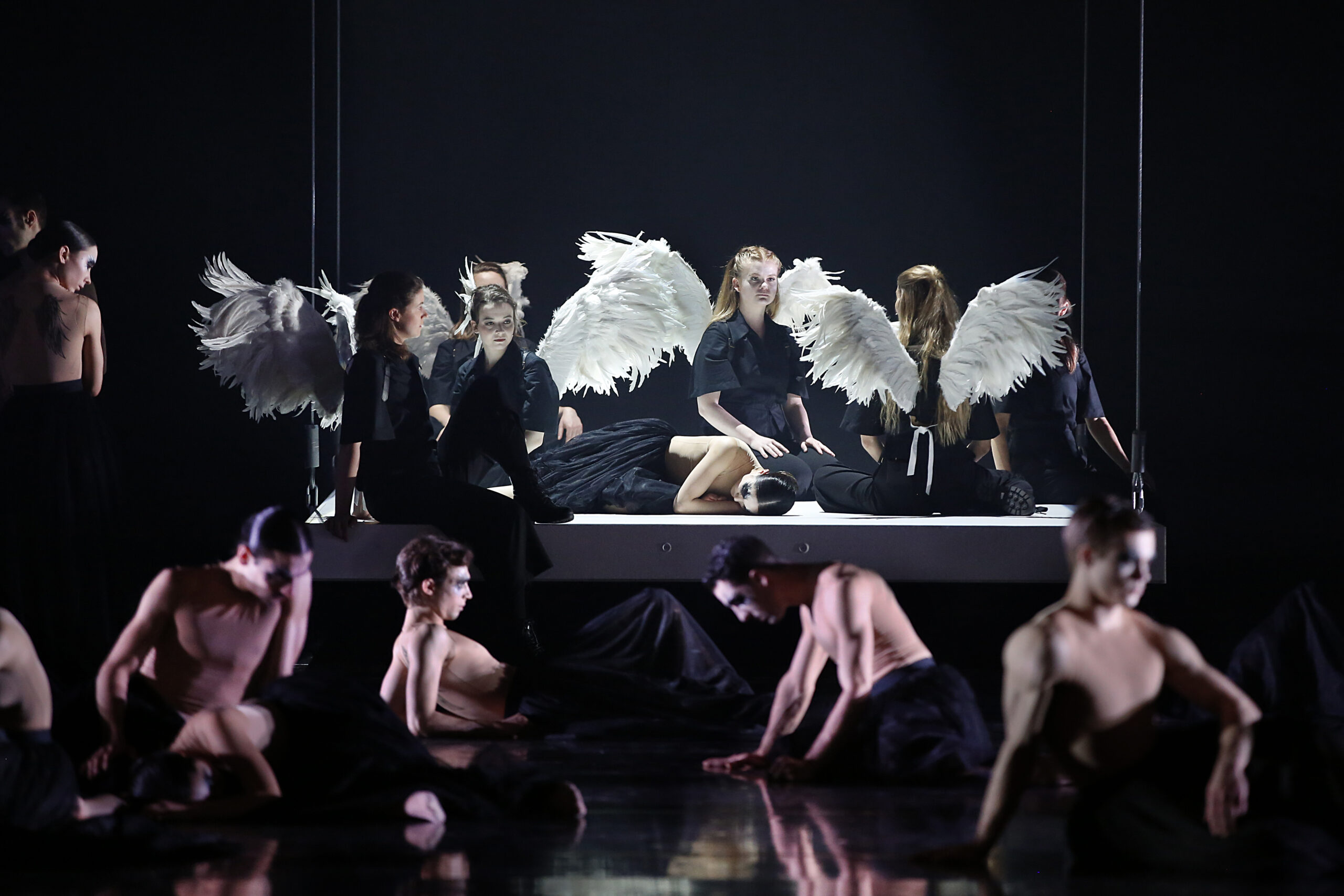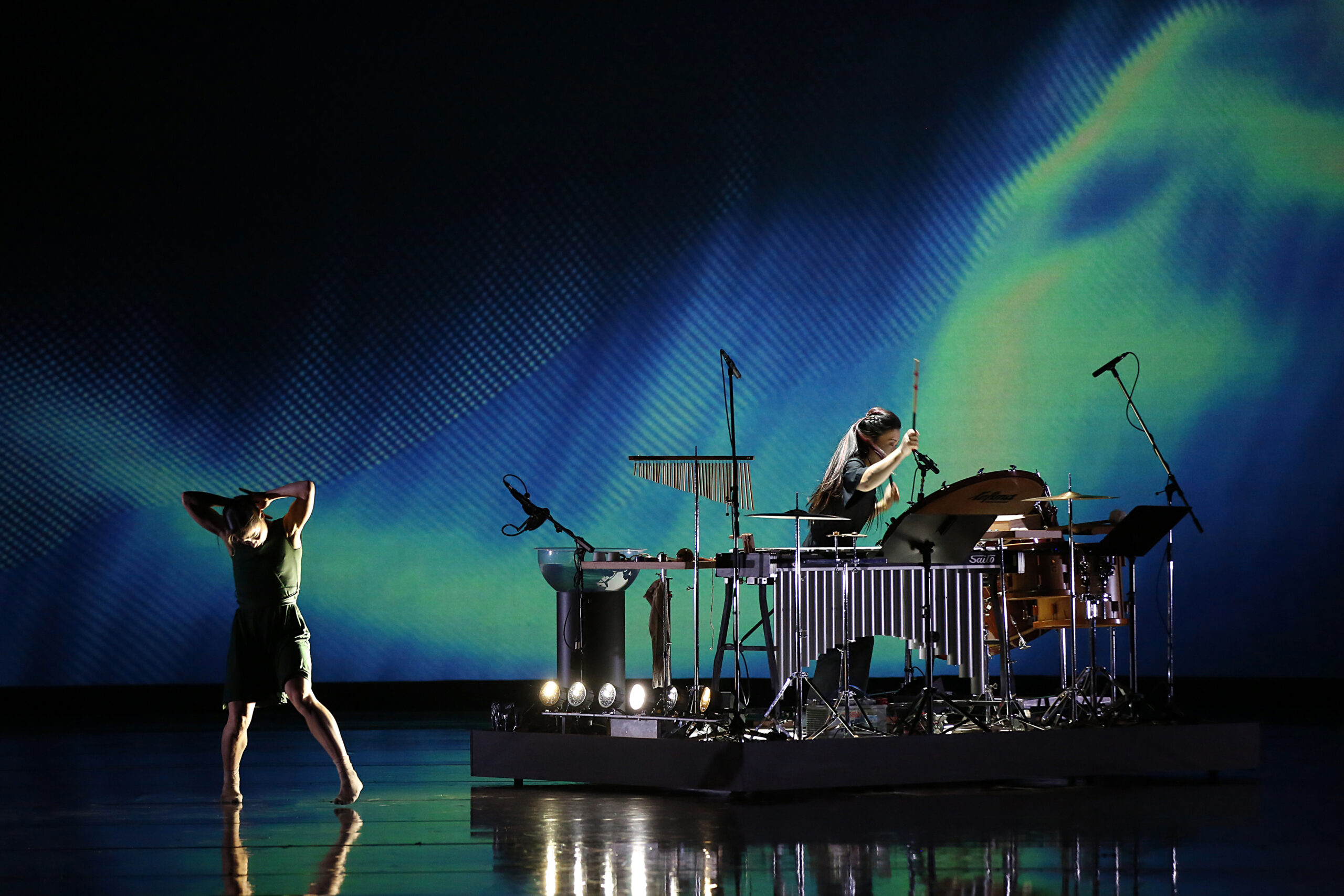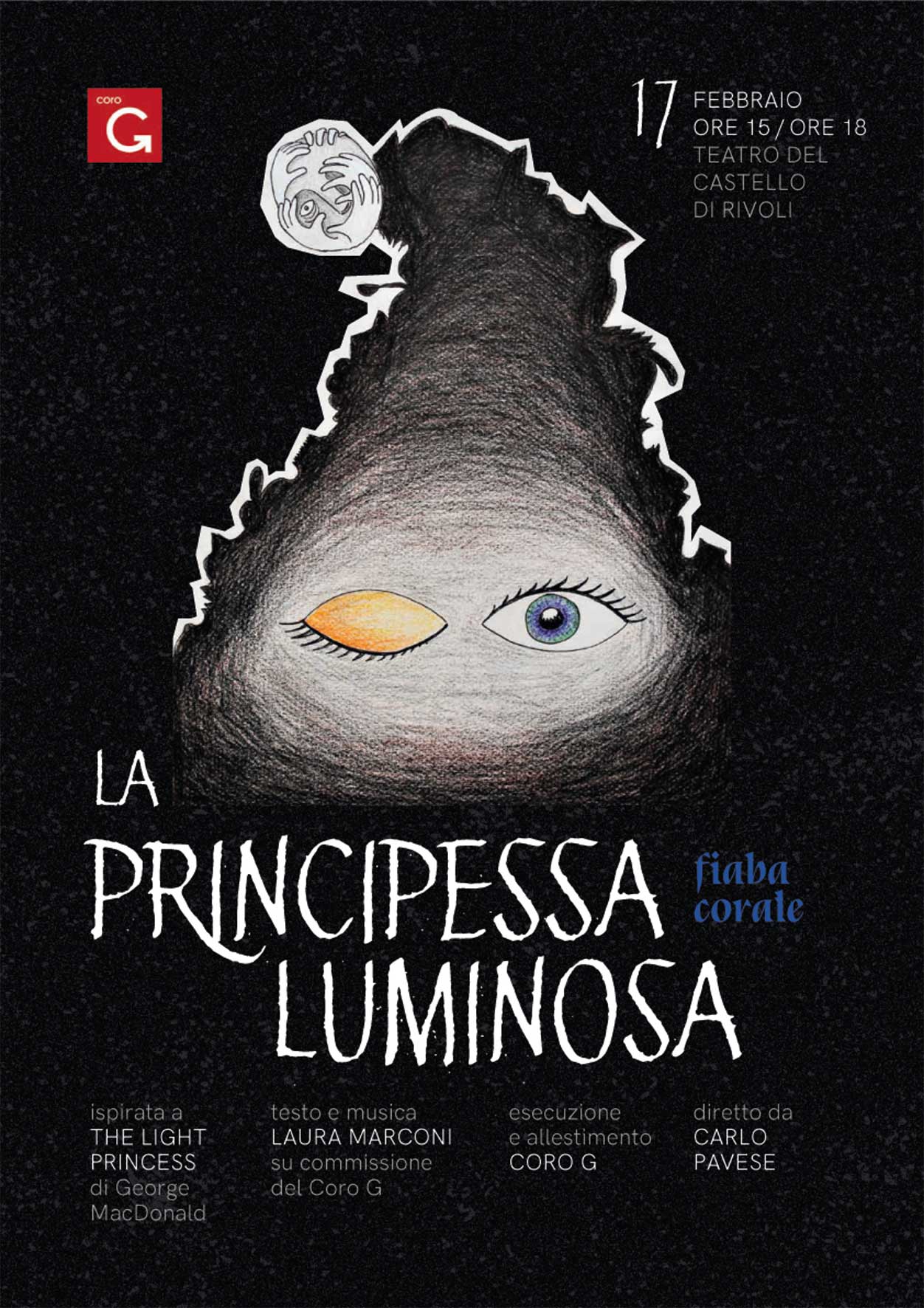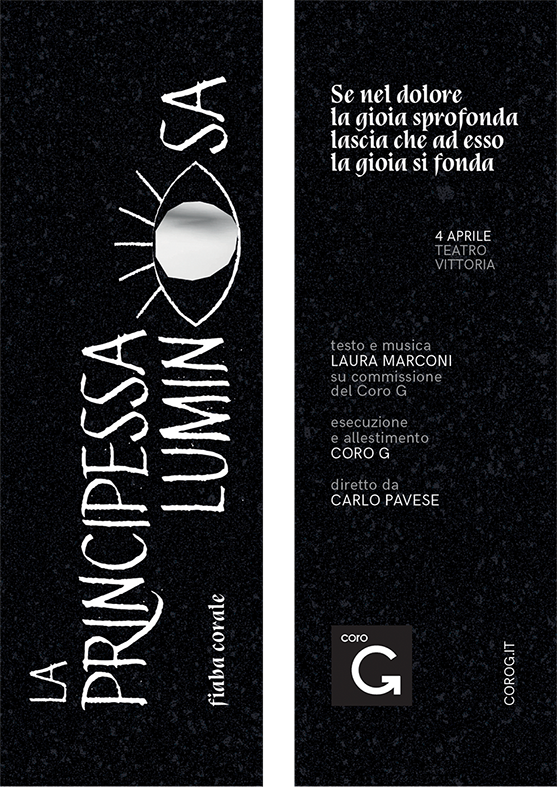
projects

Giselle
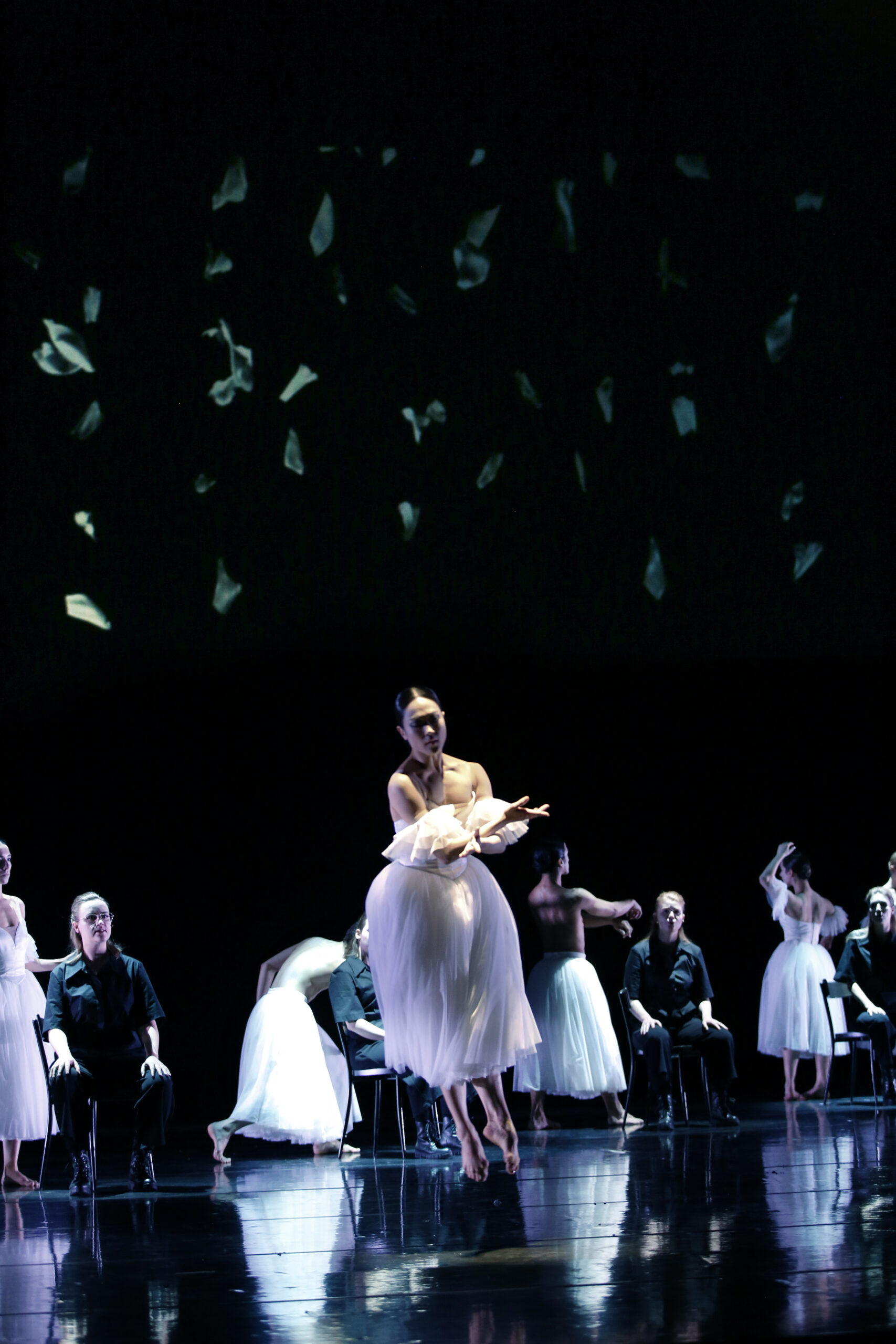
photo by Ida Zenna
Giselle
Ballet by Mario Schröder
Music: Adolphe Adam, Laura Marconi,
David Lang, Fjóla Evans, Gianluca Castelli
Premiere: 20 April 2024
Opernhaus Leipzig
Duration around 2 hours and 15 min.
Musical direction
Matthias Foremny
Choreography
Mario Schröder
Music/vocal ensemble
Sjaella
Scenography, costumes, video
Paul Zoller
Dramaturgy
Thilo Reinhardt
Lights
Mario Schröder, Michael Röger, Paul Zoller
Giselle
Yun Kyeong Lee
Leipziger Ballet
Percussion
Xizi Wang
Gewandhausorchester
A few years ago I took part in a call for proposals by NRW Kulturamt and presented a project on Italian folk songs dedicated to Sjaella. I won the grant and, together with the ensemble, I started sketching the first ideas (the pieces were then completed in 2025 and will be part of a new CD to be released in October 2025), but in the meantime other impulses came in and we had to put the project aside. In autumn 2023, after a successful collaboration on ‘Bach’s Engram – Variationen über das Gedächtnis’ (composed together with my husband, Gianluca Castelli), Viola Blache, first soprano of Sjaella, tells me about the plan to compose a new version of the ballet ‘Giselle’ for the Leipzig Opera and asked me if I was interested. I accepted the challenge with great enthusiasm.
Sjaella had drawn Mario Schröder (choreographer and mind behind Giselle)´s attention to our pending collaboration on Italian folk songs and in particular on the taranta (or pizzica) and the phenomenon of tarantismo. The tarantismo is a cultural syndrome from southern Italy that, in popular tradition, is associated with a disease supposedly caused by the bite of spiders (tarantulas). The term tarantismo refers to the disease, but also to the choreographic therapy required to get rid of it. The ritual consists of a kind of musical exorcism that begins when the tarantata, i.e. the woman bitten by the spider, feels the first symptoms and asks musicians to come and play the pizzica. To the sound of the music, the woman begins a wild dance in which she imitates the movements of the spider, but at the same time superimposes her own choreographic rhythm over that of the animal, forcing it to dance until it dies of exhaustion.
We wanted to draw a parallel between the original story, in which Giselle dances with the Willis, and ours, in which women free themselves from pain and anger by giving them space and meaning. They are empowered by sharing their experience with each other, by transforming the pain into art. ‘Siam finocchio, liquirizia’ in the second act is based precisely on a theme and a rhythm that is characteristic of the town of San Vito dei Normanni in Salento, namely the taranta d’acqua (water taranta). ‘Cenere’ (Ashes), the last number of the first act, also comes from a very old tradition that originated in Greece, then spread throughout the Latin world and survived in southern Italy in the form of ritual chants until a few decades ago. The episode is inspired by the so-called rèpute or prefiche, women who were paid to weep at funerals, thus offering brief consolation to the relatives of the deceased with their painful songs and laments.
As I was composing for a ballet, naturally I wanted to create a strong connection to dance. You could say that each piece is a kind of ‘dance of the soul’: ‘Mein Grund, mein Puls’ represents the hopes of a young, dreaming spirit moving freely and naively in a seemingly infinite space. In ‘Wo bist du’, the harsh collision with an unjust society interrupts the joyful whirling and transform it into a rigid, forced march, wedged between the pavements of a merciless world. The resulting suffering seeks its catharsis in ‘Cenere’, where an emotional paralysis leads to fearful screaming and eventually to general chaos. Through a magic charm which takes the form of an ancient ritual, the dance is set in motion again in ‘Lotus’, uncertain initially, then frenetic, powerful, liberating in the ecstatic dance of ‘Siam finocchio, liquirizia’.
Finally, the ethereal reverie of ‘Trost’ takes us back to our initial dream world: but as if in order to fly free we must first have crossed the abyss, we dance with renewed grace and vigor, with every muscle, every tiny contraction of the face containing the entire past experience, feeling more at ease, more connected to one another, and stronger.
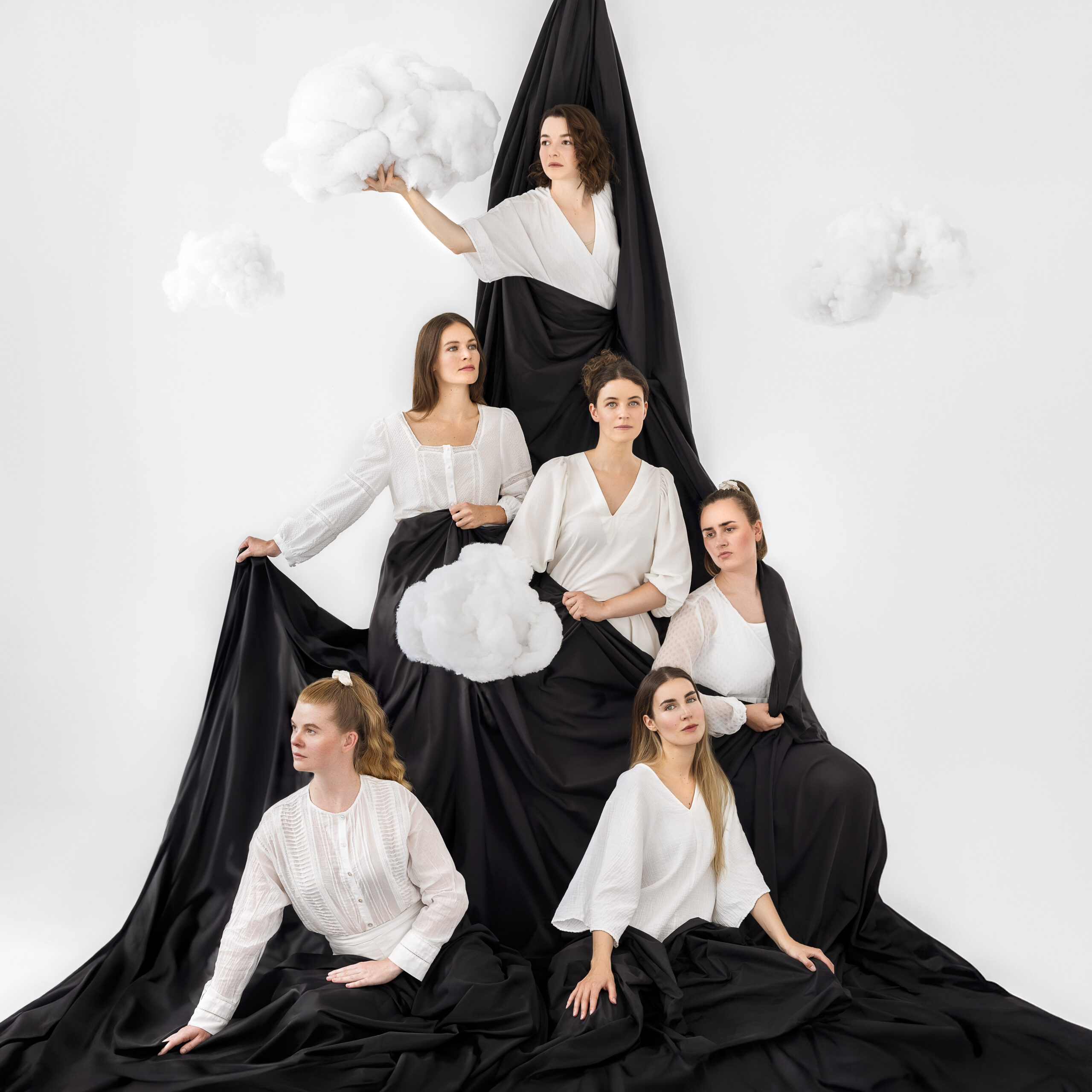
Photo by Lara Müller
Bachs Engram
Variationen über das Gedächtnis
8 Interludes to J.S. Bachs Orgelmesse
(Dritter Teil der Clavierübung)
Music: Laura Marconi, Gianluca Castelli
Premiere: 07 September 2023
Freiberger Dom
Texts from Bachs Chorals, The Brain by Emily Dickinson, Deus ti salvet by Bonaventura Licheri
Commissioned by Freiberger Dommusik
Dedicated to and performed by Sjaella
I – The Brain [Laura]
to establish a durable memory, incoming information must be encoded much more thoroughly, or deeply, by associating it meaningfully with knowledge that already exists in memory. This is known in the psychological literature as a “depht of processing” effect
II – Ear-worm [Gianluca]
a piece of music that continuously occupies a person’s mind even after it is no longer being played
III – Trauma [Laura]
tràuma [from Gr. τραῦμα (-ατος) “wound”]
In psychology and psychoanalysis, disturbance of the psychic state produced by an event endowed with considerable emotional charge. Serious alteration of the normal psychic state of an individual, consequent on sad, painful, negative experiences and facts, which disturb and disorientate
IV – Amnesia [Gianluca]
a medical condition in which somebody partly or completely loses their memory. In most cases, it is caused by a head trauma (brain damage) but it also can occur after a very traumatic event. Nearly one in three people reported “memory difficulties” after a traumatic event, probably because they were so upset that they did not encode ongoing events normally
IV.2 – Amnesia [Gianluca]
musician Clive Wearing, who was also a conductor, in 1985 contracted a viral infection that attacked his central nervous system and left him with what famed neurologist Oliver Sacks called “the most severe case of amnesia ever documented”. Unable to form any new memories that lasted longer than 30 seconds, Wearing became convinced every few minutes that he was fully conscious for the first time. Despite having no memory of specific musical pieces when they are mentioned by name and an extremely limited recall of his previous musical knowledge, Wearing remains capable of playing complex piano and organ pieces, sight-reading and conducting a choir
V – Flashback, Flash-forward [Laura]
Flashbacks sometimes contain elements of both real and feared or imagined events. [John MacCurdy] referred to such incidents as visions in order to reflect the mixture of fantasy and reality that they often contain. In psychology there are different opinions about how to recover from a traumatic experience. The healing process, although very personal, is generally divided into four main stages: acknowledgment, safety, processing, integrate
VI – Sleep – dreaming of memories [Gianluca]
memory processes have been shown to be stabilized and enhanced and memories better consolidated by nocturnal sleep and daytime naps
VII – The one the other will absorb [Gianluca]
while conscious control over emotions is weak, emotions can flood consciousness. This is is because the wiring of the brain at this point in our evolutionary history is such that connections from the emotional system to the cognitive system are stronger than connections from the cognitive system to the emotional system. Emotions easily bump mundane events out of awareness, but nonemotional events do not so easily displace emotions from the mental spotlight
VIII – Awakening of an engram – the past within [Laura]
we now know enough about how memories are stored and retrieved to demolish another long-standing myth: that memories are passive or literal recordings of reality. Many of us still see our memories as a series of family pictures stored in the photo album of our minds. Yet it is now clear that we do not store judgement-free snapshots of our past experiences but rather hold on to the meaning, sense, and emotions these experiences provided us
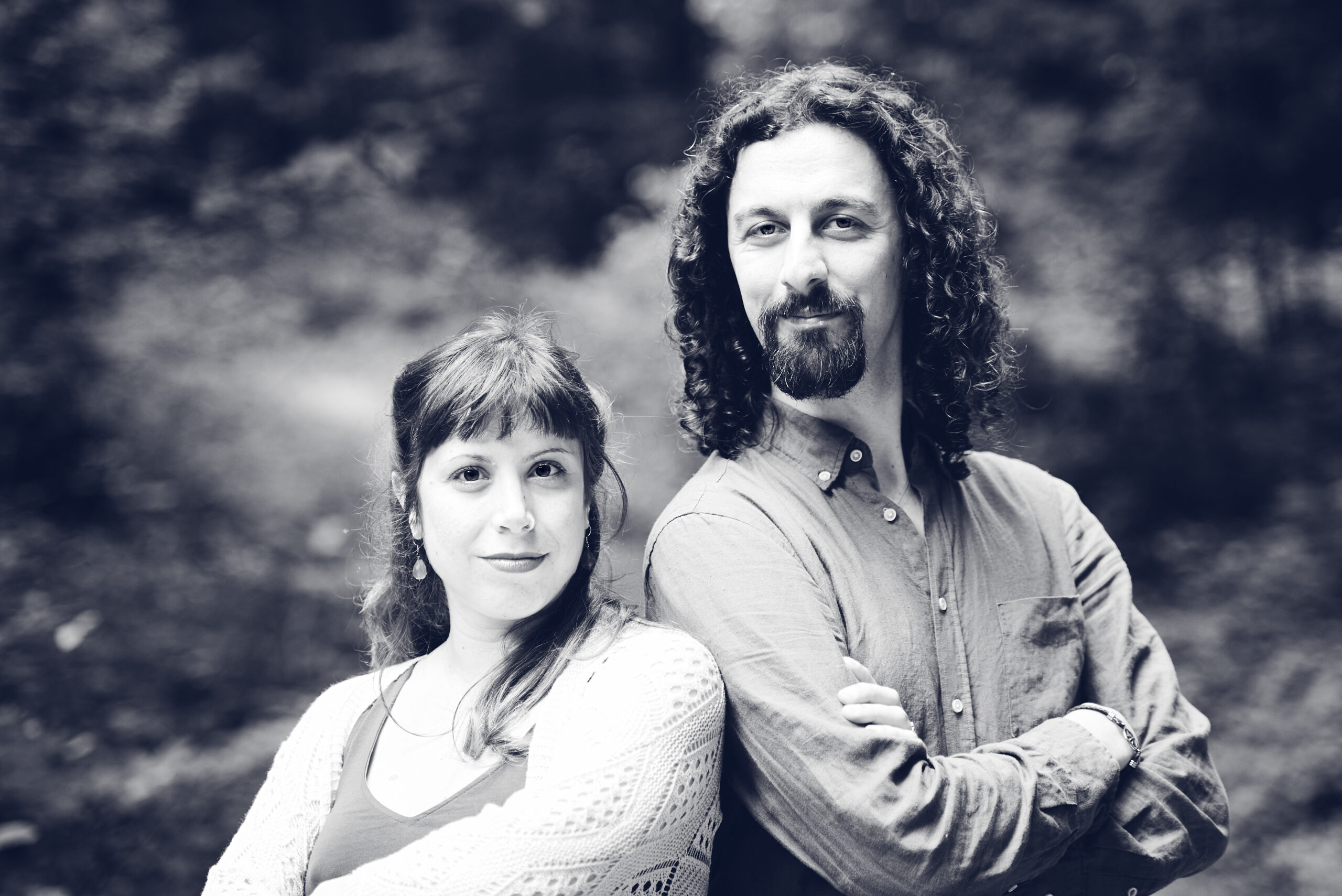
photo by Ulrike Schumann
“I know it can’t have been like that, but that’s what I remember”
Pat Barker, Regeneration
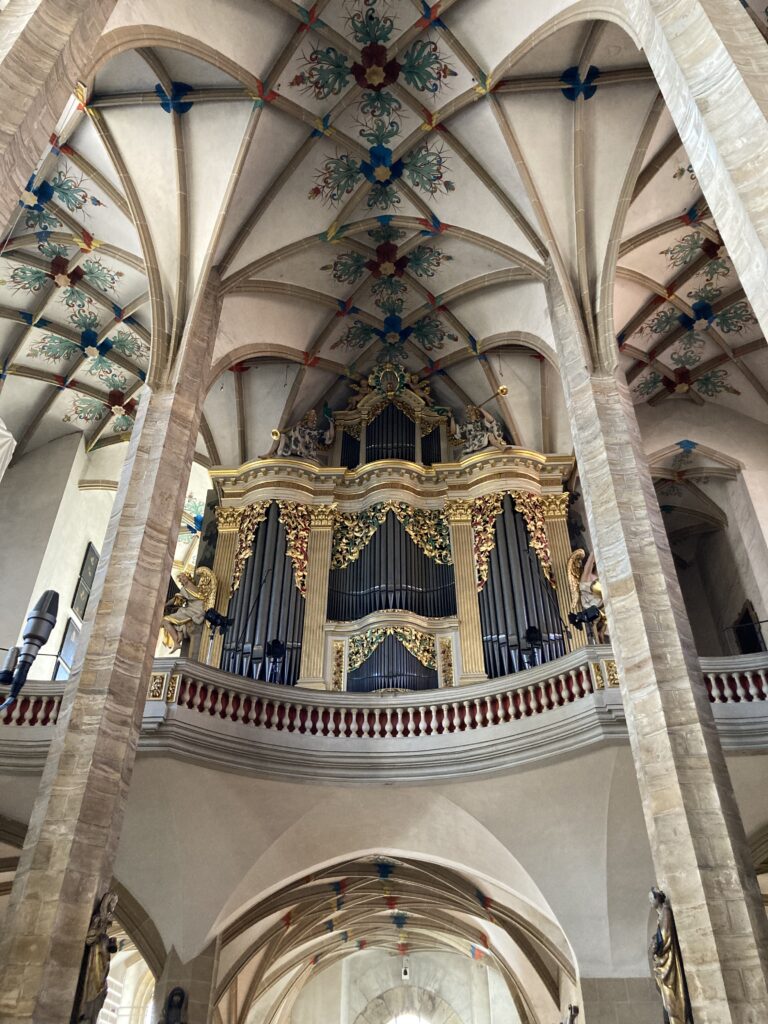
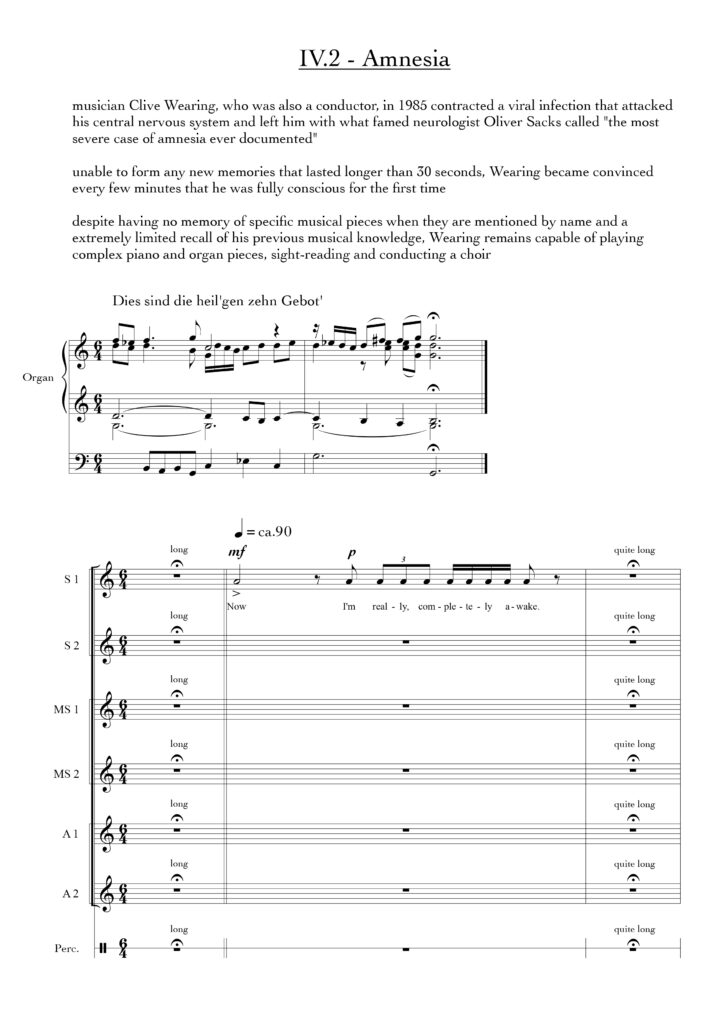
Engram is a general term for a physiological trace that leaves behind a permanent structural change in the brain. The totality of all engrams results in what we call memory.
When Sjaella asked us (my husband, Gianluca Castelli, and me) to compose contemporary chorals to J.S.Bach’s Orgelmesse, we asked ourselves the following question: how can we create a connection to the past that is respectful, but also rich in new insights and relevant to our present?
For many years we have been interested in how human emotions, perception, memory and creation work. Therefore, we wanted to find a connection between the music of the past and our passion for how the brain works, which led us to the essays ‘ Searching for Memory ’ by Daniel L. Schacter, ‘ The Emotional Brain ’ by Joseph LeDoux and ‘ This is your brain on music ’ by Daniel Levitin, on which we partly based our work. Our music interweaves different ways of dealing with Bach’s original material, having being inspired by memory mechanisms such as dreams, ear-worms, amnesia and flashbacks.
Bach’s music emerges, disappears, is processed and associated with other elements, evokes old, forgotten melodies, emerges strongly again and then sinks into what we call the unconscious, or priming. A beautiful poem by Emily Dickinson, ‘ The Brain ’, is the subterranean stream of consciousness that holds the whole work together in a more or less obvious way. Only at the end does the text take full shape, manifesting itself in its entirety, but, thanks to the unconsciously acquired familiarity, we eventually recognize it as part of us.
We wanted to create a sound world where, through associations and reminiscences, the collective and individual experiences of Bach, Sjaella and ourselves intersect, a familiar and yet mysterious place where we can meet, question our perception and rediscover ourselves, where time is nothing but an impression.
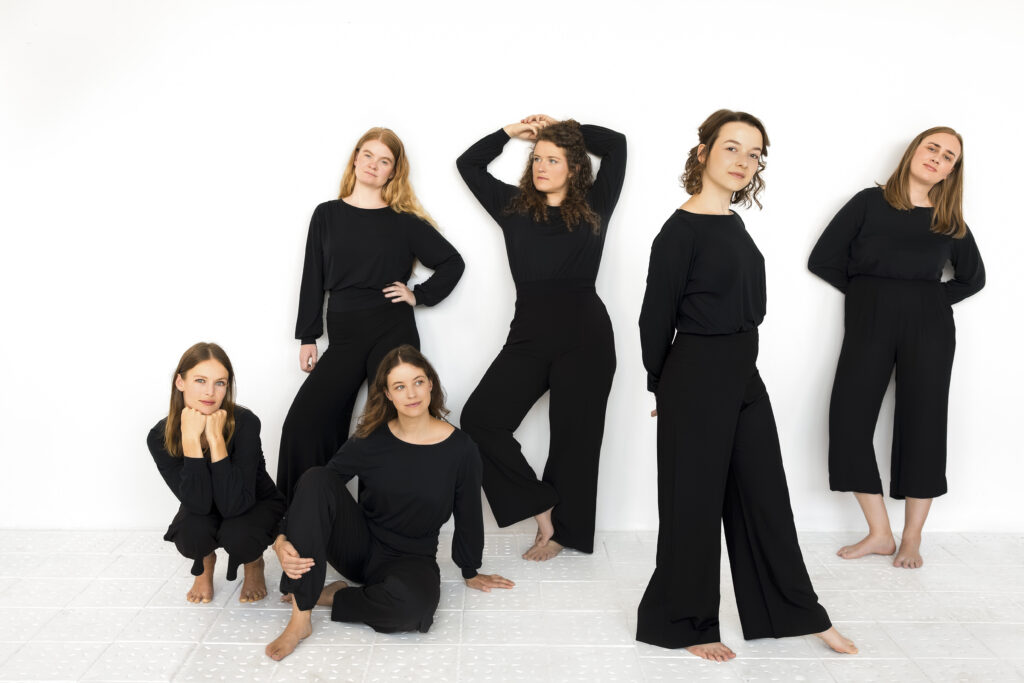
Photo by Lara Müller
La principessa luminosa
The Light Princess
A choral fairy tale inspired by George MacDonald‘s
The Light Princess
Music and Lyrics: Laura Marconi
commissioned by Coro G
Performance and mise-en-scène: Coro G
Conductor: Carlo Pavese
La principessa luminosa (The Light Princess) is an opera for a cappella choir, audience and light. Inspired by George MacDonald’s fairy tale The Light Princess, the music tells the story of a Princess who loses her voice and her will to communicate because of a cruel Witch’s spell. Lost in her own darkness, the Princess will meet a Prince, her opposite and complementary alter ego, who will act as a vehicle to the most inner place of her soul.
The audience, located in the scenic environment of the Garden, is part of the hidden interiority of the Princess and cooperates, not only by its presence but also actively, to the search for her lost voice. The choir, almost an emotional mirror of the Princess, sometimes plays the role of the chaotic brutality of the Witch, sometimes that of the refined, though a little clumsy courtiers; at other times it is the consciousness of the Princess herself, who, transfigured into sound landscapes and light games, surrounds the audience with a spiritual, ritual atmosphere.
The traditional roles of fairy tales, such as the Prince, the Princess, and the Witch contribute to stage a deep existential drama, though without lingering in the anguish or sadness within: the ambiguity of emotions finds its space, literally and metaphorically, in the changing facets of music, which constantly juggles very different elements such as a delicate but powerful harmony, the sound noises made by both the choir and the audience, many kinds of improvisation, and an unconventional use of the voice.
The work speaks to an audience of all ages and linguistic backgrounds: there is no need for narration as everything is represented through light and sound. La principessa luminosa can be appreciated at all levels, from the immediate one of fairy tale charm, to the more concealed interpretations, where psychological and literary archetypes, musical quotations, life experiences, childish fears and dreams are weaved together into a peculiar, atypical web.
La Principessa Luminosa
Fiaba corale ispirata a The Light Princess di George MacDonald
Testo e musica: Laura Marconi su commissione del Coro G
Esecuzione e messa in scena: Coro G
Direttore: Carlo Pavese
La principessa luminosa è uno spettacolo per coro a cappella, pubblico e luce. Ispirato al racconto The Light Princess di George MacDonald, la fiaba ripercorre le vicende di una principessa che, a causa del maleficio di una strega crudele, perde una parte di se stessa: la voce e la volontà di comunicare. Smarrita nella sua stessa oscurità, la principessa incontrerà un principe, suo alter ego opposto e complementare, che farà da tramite verso un luogo rimasto a lungo sepolto.
Il pubblico, situato nell’ambiente scenografico del Giardino, è parte stessa dell’interiorità della principessa e collabora, non solo con la sua presenza ma anche attivamente, al cammino per ritrovarne la voce perduta. Il coro, specchio emozionale della principessa, veste talvolta i panni della caotica brutalità della strega, talvolta quelli dei raffinati, ma un po’ goffi, cortigiani; altre volte ancora è la coscienza della principessa, la quale, trasfigurata in pensieri sonori e giochi di luce, avvolge il pubblico in un ambiente magico e rituale.
I personaggi tradizionali della fiaba quali Principe, Principessa e Strega concorrono a mettere in scena un dramma esistenziale profondo, senza però indugiare nell’angoscia o nella tristezza che il dramma porta con sé: l’ambiguità delle emozioni trova il suo spazio, letteralmente e metaforicamente, nelle cangianti sfaccettature della musica, riscoprendo al suo interno la possibilità di un delicato ma potente equilibrio armonico.
Lo spettacolo parla ad un pubblico di ogni età e di ogni provenienza linguistica: non c’è narrazione, tutto è rappresentato. La principessa luminosa può essere apprezzato a tutti i livelli, da quelli più immediati dell’incanto fiabesco e prodigioso a quelli più nascosti, dove si intrecciano archetipi psicologici e letterari, citazioni musicali, esperienze di vita.
Die helle Prinzessin
Chorisches Märchen
Basiert auf The Light Princess von George MacDonald
Texte und Musik: Laura Marconi im Auftrag von Coro G
Aufführung und Inszenierung: Coro G
Dirigent: Carlo Pavese
La principessa luminosa ist eine Oper für a-cappella Chor, Publikum und Licht. Von der Kurzgeschichte The Light Princess von George MacDonald inspiriert, zeichnet das Märchen die Geschichte einer Prinzessin nach, die durch den Fluch einer grausamen Hexe einen Teil ihrer selbst verliert: die Stimme und den Willen zur Kommunikation. Verloren in ihrer eigenen Dunkelheit, wird die Prinzessin einen Prinzen treffen, ihr gegensätzliches und komplementäres Alter Ego, das als Vermittler zu einem Ort fungiert, der seit langem begraben ist.
Das Publikum, das sich im Umfeld des Gartens befindet, ist ein Teil des Inneren der Prinzessin und arbeitet nicht nur mit ihrer Anwesenheit, sondern auch aktiv zusammen, um ihre verlorene Stimme zu finden. Der Chor, ein emotionaler Spiegel der Prinzessin, spielt manchmal die Rolle der Hexe in ihrer chaotischen Brutalität, manchmal die der raffinierten, aber etwas ungeschickten Höflinge; dann wiederum stellt er das Bewusstsein der Prinzessin dar, die, in klangvolle Gedanken und Lichtspiele verwandelt, das Publikum in eine magische und rituelle Umgebung einhüllt.
Die traditionellen Charaktere des Märchens wie Prinz, Prinzessin und Hexe setzen zusammen ein tiefgreifendes existenzielles Drama in Szene, ohne jedoch in der Angst oder Trauer zu verweilen, die das Drama mit sich bringt: Die Ambiguität der Emotionen findet ihren wörtlichen und metaphorischen Raum in den schillernden Facetten der Musik und entdeckt darin die Möglichkeit eines zarten, aber kraftvollen harmonischen Gleichgewichts.
Die Oper spricht ein Publikum jeden Alters und jeden sprachlichen Hintergrunds an: Es gibt keine Erzählung, alles wird sichtbar gemacht.
La principessa luminosa kann auf allen Ebenen geschätzt werden, von den unmittelbarsten der märchenhaften und erstaunlichen Zauberei bis zu den verborgenen, in denen psychologische und literarische Archetypen, musikalische Zitate und Lebenserfahrungen miteinander verflochten sind.
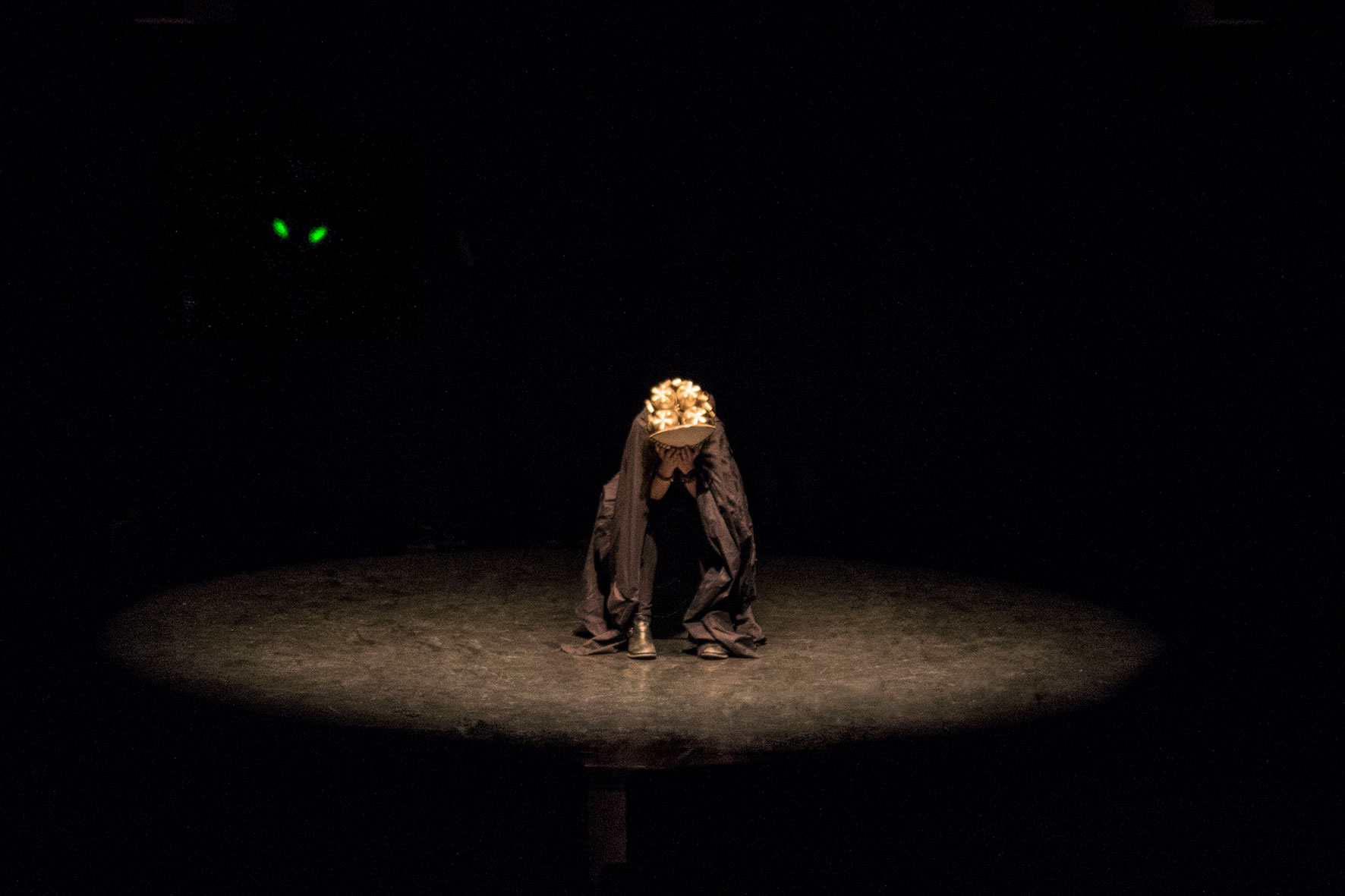
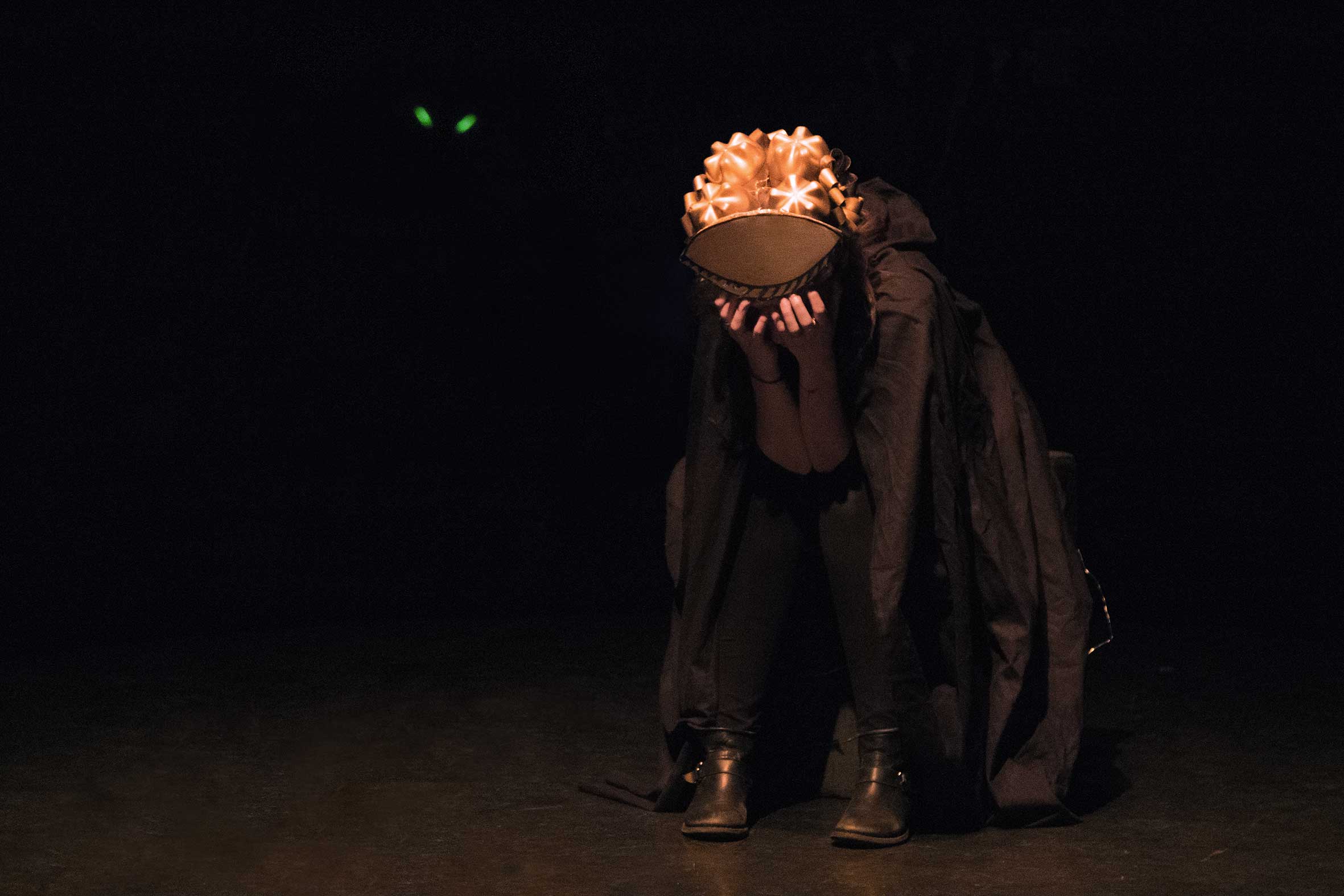
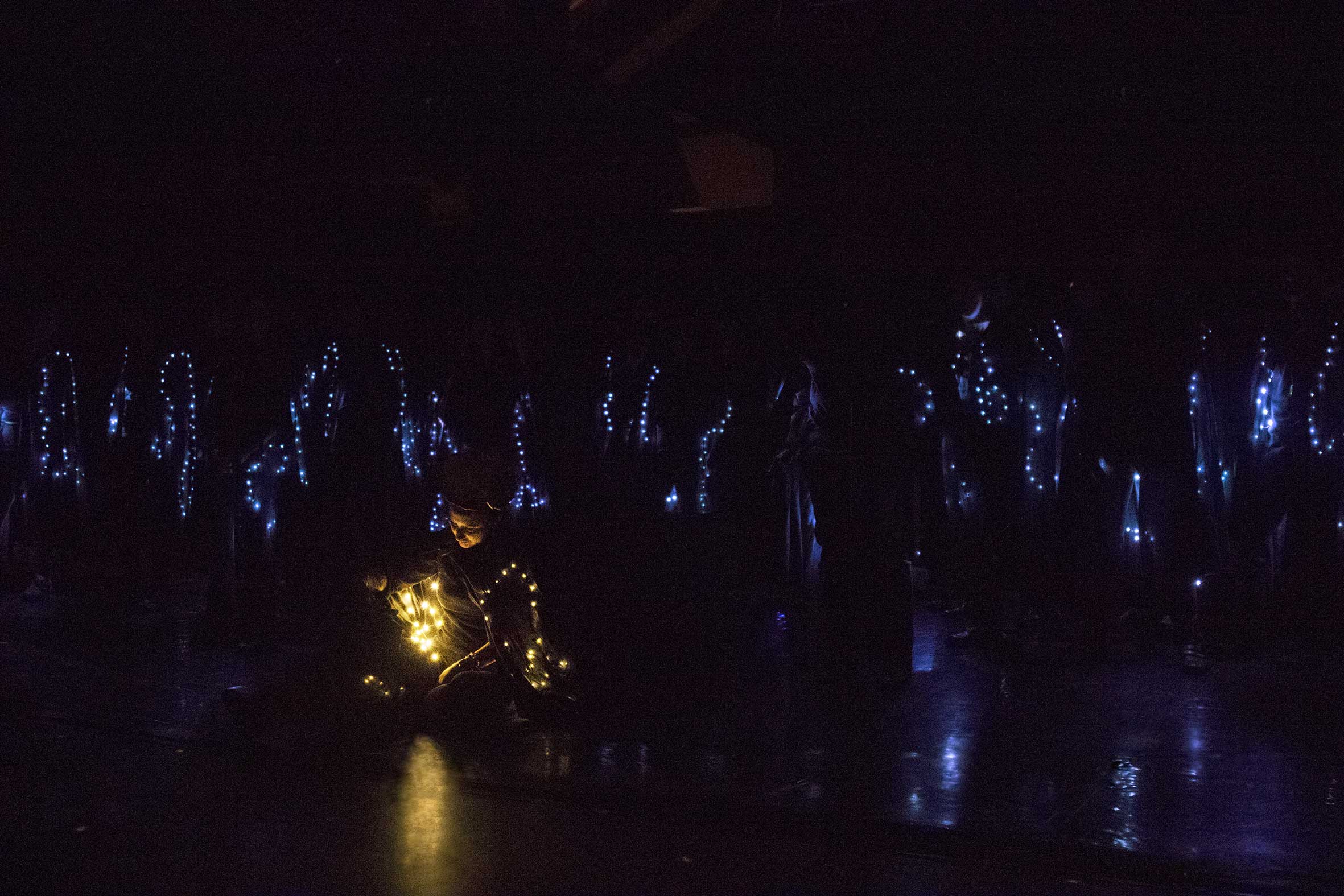
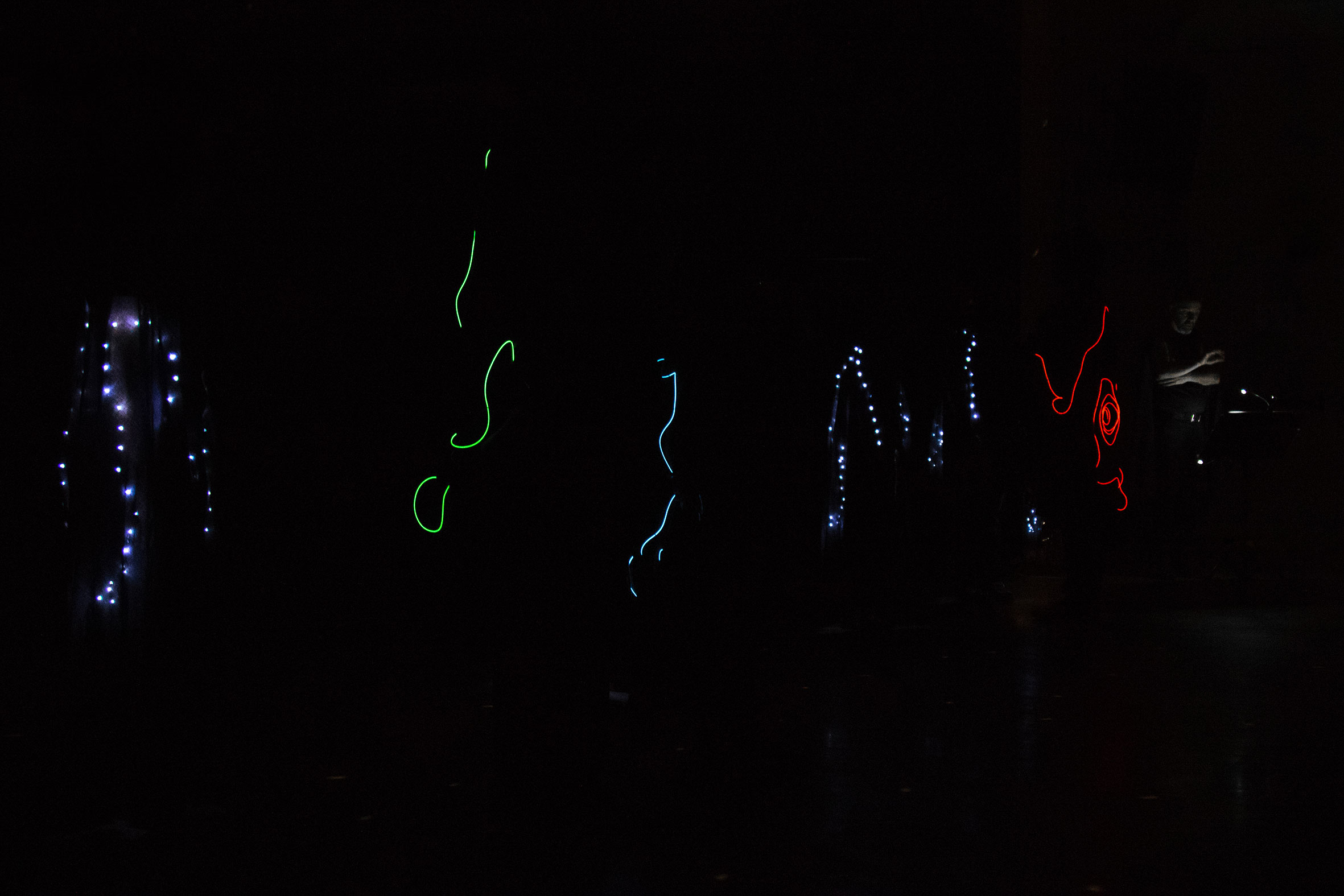
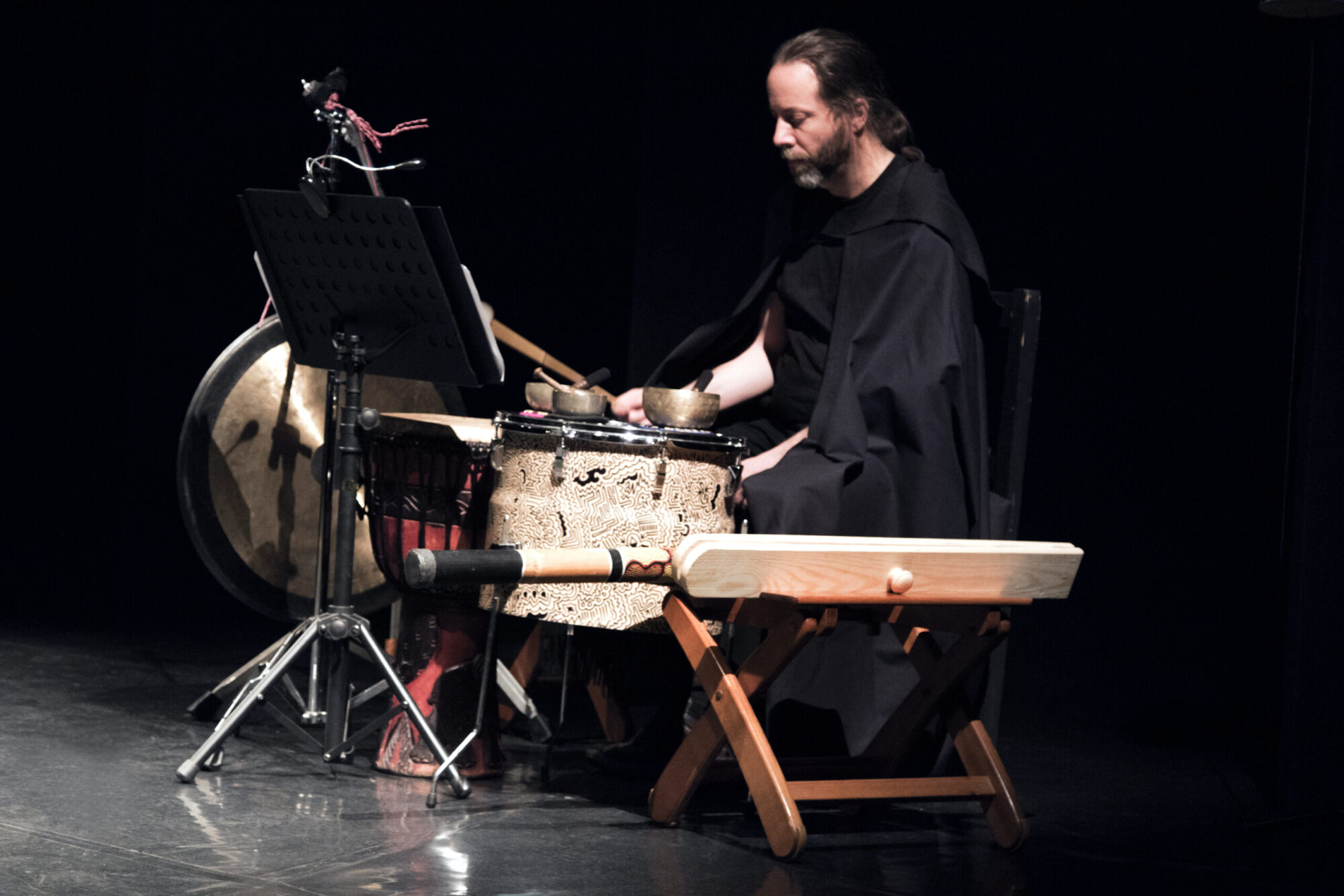
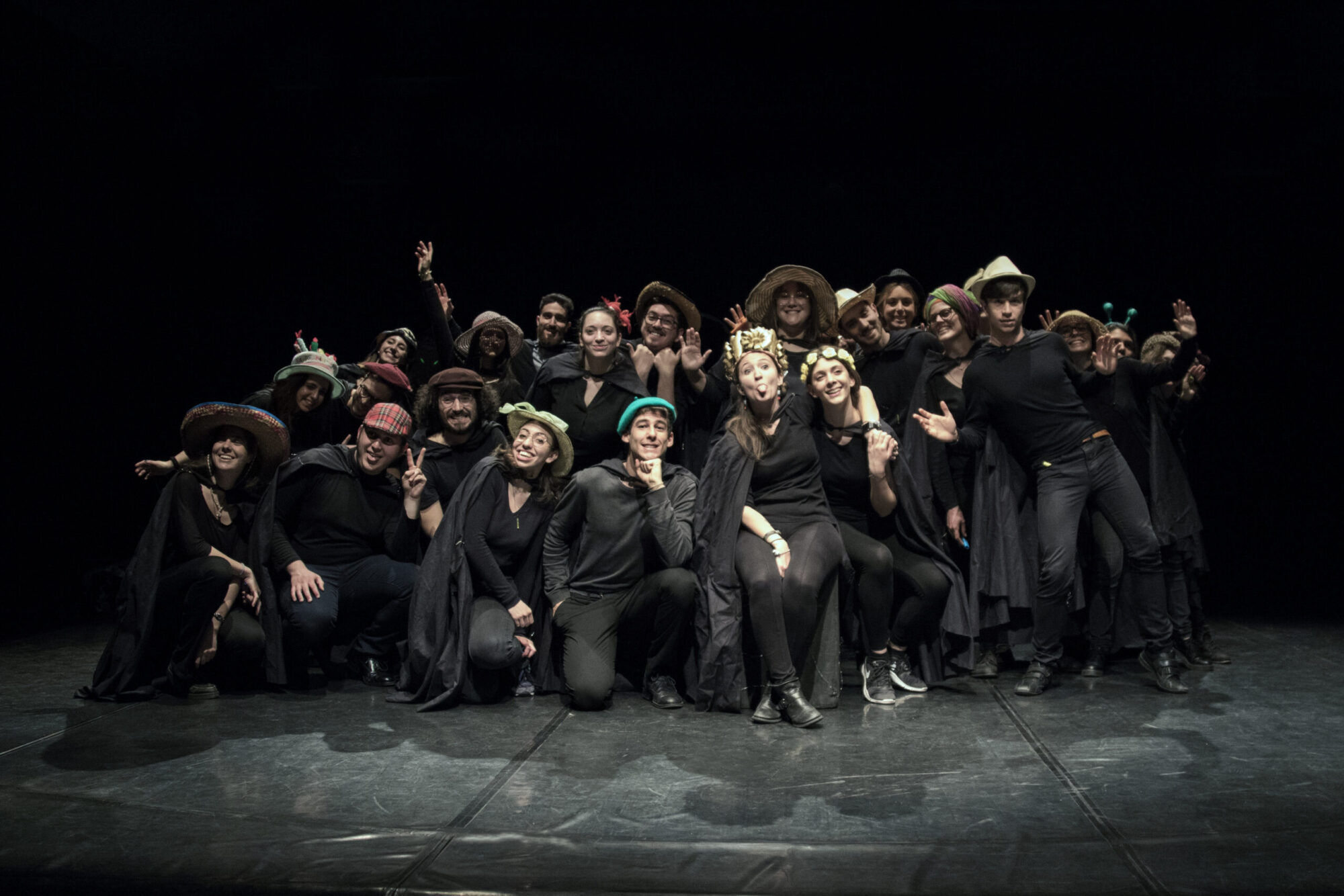
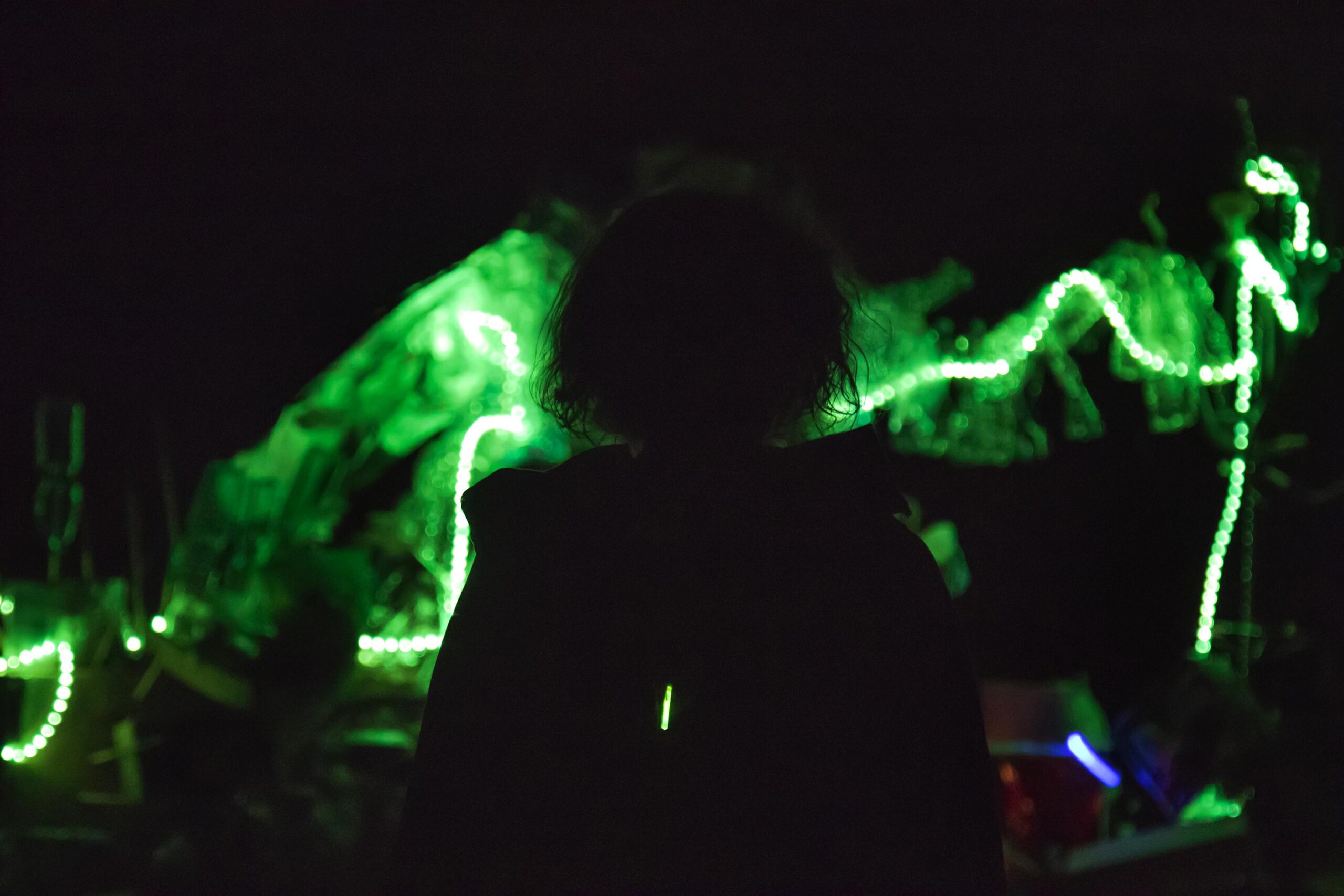
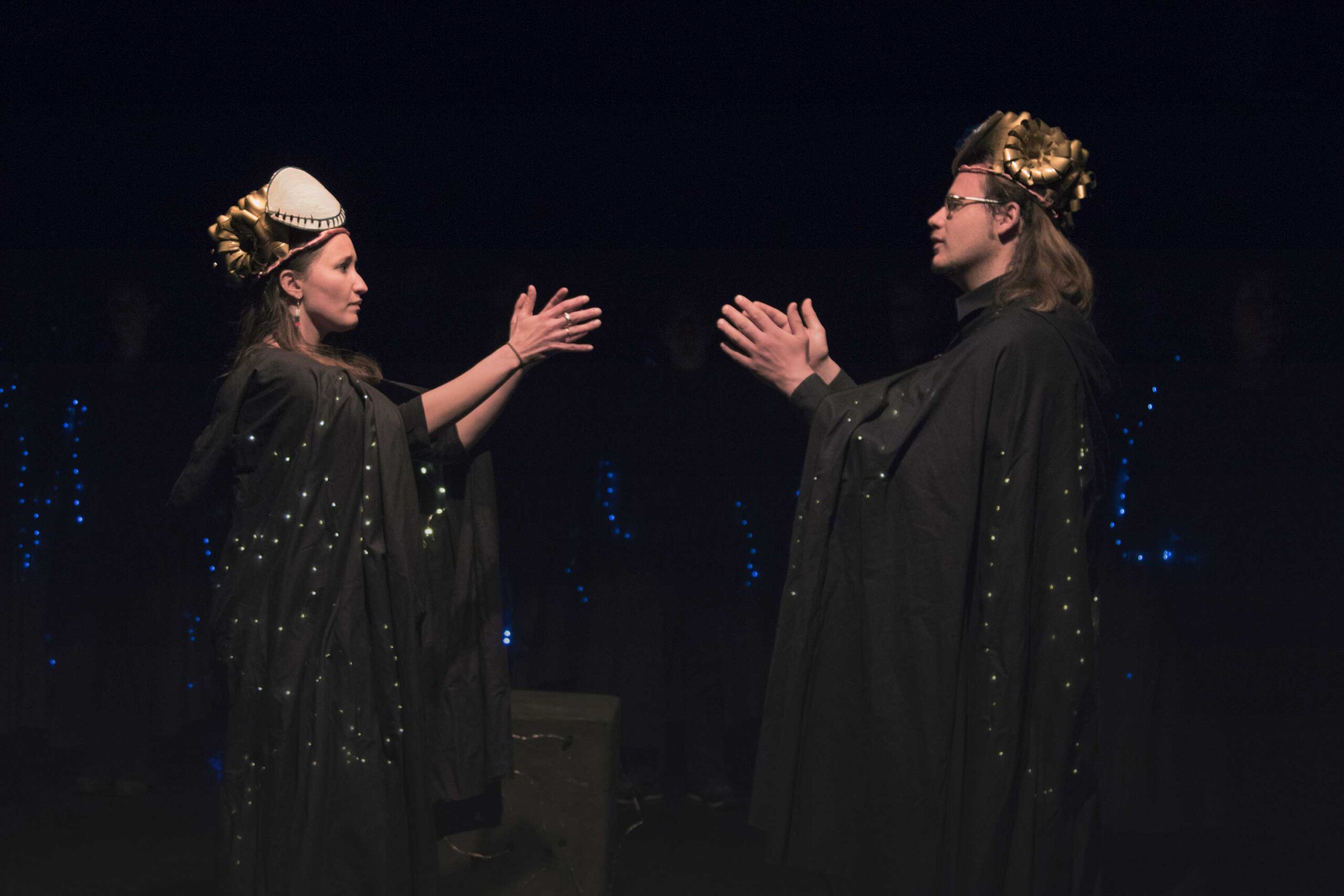
Coro Italia Altrove
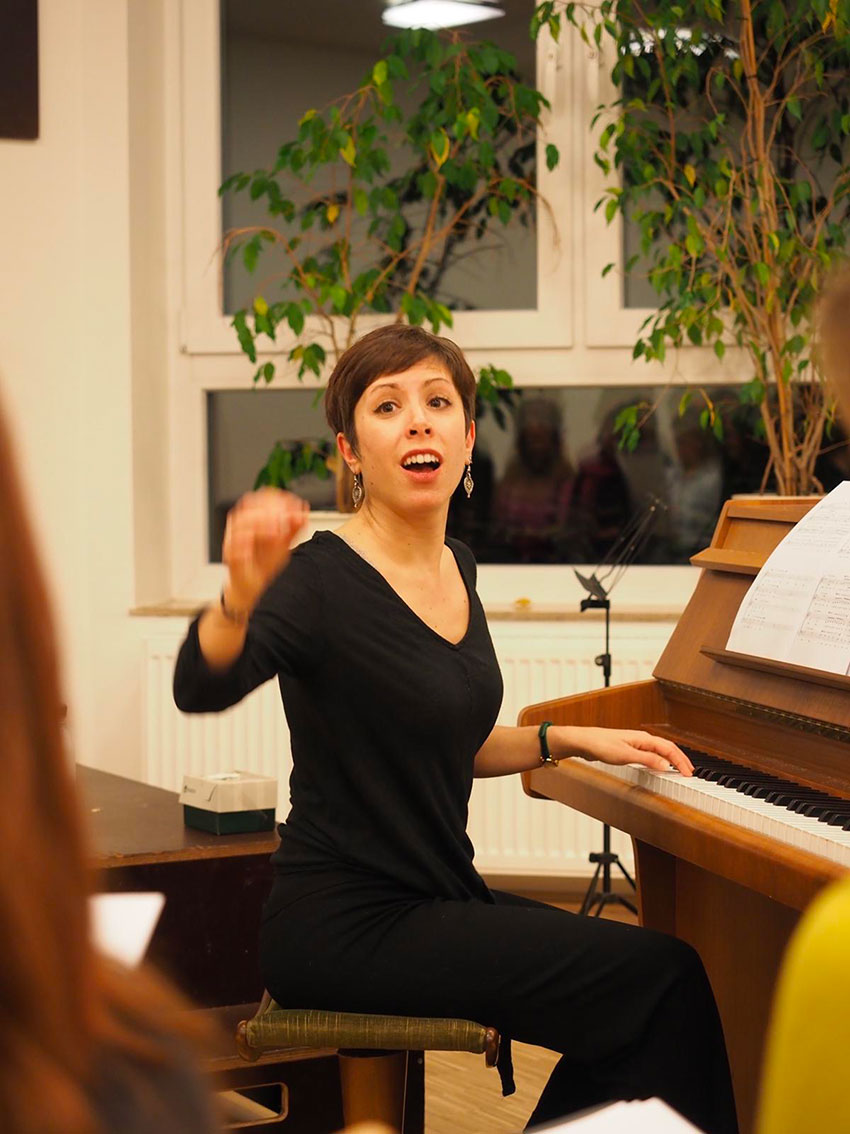
Come meet our cheerful Italian choir in Düsseldorf!
Italia Altrove® is a cultural association whose purpose is to spread the Italian culture through the organization of events such as meetings with authors, concerts and guided tours of museums, as well as workshops, activities for children, meetings with experts, and sports activities. The association also aims to help Italian individuals and families who recently moved to Düsseldorf to better and faster integrate in the city, by providing them with useful information as well as organizing and facilitating opportunities to meet.
I came across Italia Altrove® by participating in some of their cultural events. On such occasion, I casually learned that they wanted to propose some kind of musical activity on Italian repertoire. On June 2nd 2019 we rehearsed for the first time with a small group of people, and right from the start we found ourselves in sync. The choir was born!
We have been collaborating since September 2019: Now we sing every Sunday from 7 to 9pm, flipping through Italian repertoire, both popular and modern, some gospel classics in English, some sparkling African Folksongs. With more than 30 active members, Coro Italia Altrove is a unique reality that attracts people of all ages who share their common love for singing and the Italian culture.
What you need to know
Rehearsals are held in Italian, so you need to have good knowledge of the language
The repertoire is mainly modern and almost entirely Italian
The target are people of all ages, although that doesn’t include children. Our youngest members are teenagers.
No previous musical knowledge is required. This is an amateur choir.
It is possible to watch a rehearsal without any previous payment. Regular participation in the choir, though, involves a registration fee. Italia Altrove is a not-for-profit organization, so they need to ask for a small contribution in order to be able to pay the premises and the conductor.
The choir meets every Sunday from 7 to 9 pm at Rather Familienzentrum,
Rather Kreuzweg 43, 40472 Düsseldorf

